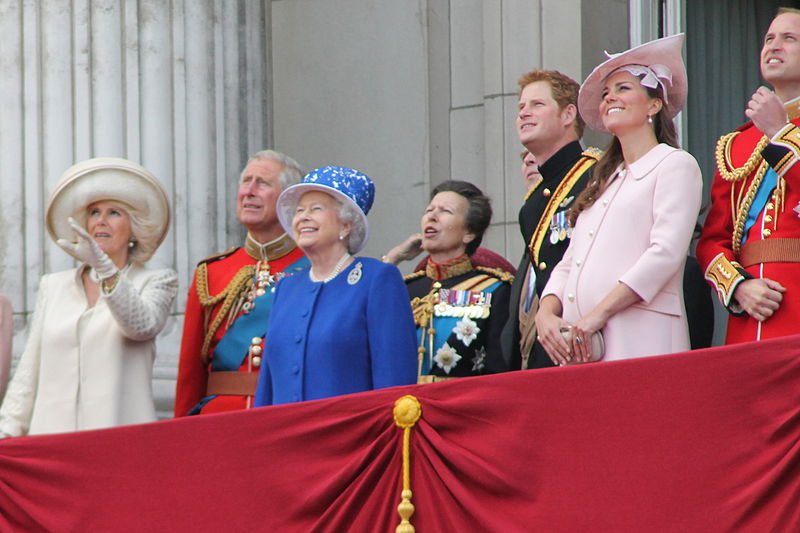In this article, discusses the current global balance of power. After explaining the political term of “Sick Man”, predicts that the currently-polarized world is bound to produce a new sick man.
The Ukraine war, a prominent element in a sequence of events, invites a review of the shifting political and economic landscape on a global level. From the perspective that history repeats itself, this article will lay the possible outcomes of this war on the political structure of the belligerents based on their past.
The Ottoman Empire, once at its apogee under the rule of Suleiman the Magnificent in the 16th century, witnessed centuries of decline. By the 19th century, it reached a stage where it was labelled as “the sick man of the Bosporus”. The title changed into the “sick man of Europe” in the beginning of the 20th century until the full disintegration of the Ottoman Empire, following its defeat in World War I.[1]
The geopolitical interests of the post Napoleonic wars prescribed the weakening of the Ottoman Empire. In continental Europe, the Metternich policy of unification[2] reduced the risk of European civil wars that would have weakened it internally, and consequently, invited any gain in power from the Ottoman Empire or Russia; while Great Britain had an interest in safeguarding its colonial routes, notably to India through the Suez Canal. Such routes would risk being undermined by a powerful empire. As a result, the Ottoman Empire was weakened externally by continuously disrupting its economic interests, leading to a status quo of a sick man for more than a century.[3]
In geopolitics, a sick man is when one country of a strategic interest and risk to its neighbours, is or is made to limp economically, remaining at a stagnant state where it does not implode for internal security concerns that may ripple to the neighbouring countries, however preventing it from prosperity to avoid it imposing its diplomatic and military agenda. The term has been used by researchers with adaptations to describe the US[4], China[5] [6], Italy[7], Tunisia[8], Nigeria[9] and others.
Today, four major entities have become powerful on the global scene, which is an unviable model of governance, whether with regards to leadership, political decisions or the exploitation of resources. The clash seems almost inevitable. As an outcome, entities will gain dominance at the expense of the faltering others, and a new sick man will undoubtedly emerge.
The winning block of World War II, led by the United States as a first entity and a satellite Europe as a second entity, has won the military war, the financial dominance (The Bretton Woods system)[10], the media war and the popular vote. It built up its leadership for the decades to come, reinforcing it with reconstruction and globalization, a cold war that dismembered the Soviet Union and contained China, until its leadership became a global monopoly.
In parallel, after the fall of the Soviet Union and counter intuitively to an expected depression, Russia, the third entity, built up its economic powers through the development of natural resources and their inexpensive sell off to the rest of the world.
China, the fourth entity, which was perceived as irrelevant on the diplomatic scene after World War II, built itself as the manufacturer of the world, becoming an unavoidable global power.
Until the big clash.
The present day war, limited today to a battlefield confrontation in Ukraine, and other tension fronts, such as Serbia/Kosovo[11], Armenia/Azerbaijan[12], and Taiwan/China[13], has been in the works for over a decade with the Arab spring[14], an uprising in a geopolitical region of importance to the West in terms of natural resources and location. If kept gaining traction, this sequence of events might lead to wars on multiple fronts, in what could be identified later on by historians as World War III.
This tension is polarizing the world around two axes, the West and the East. Each has its agenda: for the West, maintaining the dominance and reaffirming it for the 21st century through financial and military supremacy, under the umbrella of globalization; and for the East, breaking this dominance through the forced collapse of the financial system and under the umbrella of regionalization.
The outcome of these historic years will lead not only to a country being a sick man within its continent, but rather the losing entity or block being a sick man of the globe. In what follows is the layout for each entity of what decentralization may look like if said entity becomes the sick man and based on its specific history.
For the US, this may risk a secession that reminds of its history, with slavery and the metropolis, and the difference in industries. An example of this is the secession of many states of the south from the north during the 19th century[15], due to tensions related to differences in economies, where the north was industrialized while the south remained agrarian, in addition to the ethnic differences that posed a major societal issue; this time done however for financial reasons with rich states not wishing to pay the tab for poorer states. Such a scenario, should it happen, would have been a first in more than 150 years, where the trend of the US consolidation of power and states joining the federation may reverse with states seceding again, intensifying the decline of the central government.
The European Union’s decentralization may lead to its implosion, somewhat keeping a unified monetary system, however loosing on the centralized foreign policy. On the long run, divergences in policy choices between the countries may lead to extreme economic choices that would affect as well the unified currency system. Divergence from the Ukraine/Russia war between member states is coming to light[16], even though contained in 2022, on what policy to adopt towards Russia; and within these states, between policymakers and officials of the governments, and the population[17], with frequent demonstrations occurring in multiple European capitals on the cost of living and inflation, caused by an increasingly expensive energy bill.
Russia would witness it differently. This is the largest country on earth with different regions, republics and ethnicities under it. Decentralization may lead to dismemberment. A not-so-far example was the fall of the Soviet Union in 1991, triggered by a controversial concession by the Soviet Union in the terms of negotiations on the unification of Germany[18], intensified by Gorbachev’s policies and a decade of economic decline[19], all exacerbating ethnic tensions. A failed coup against Gorbachev accelerated events in the Union, weakening its institutions and pushing the agenda of independence where many republics gained their sovereignty. Within six months approximately, the second half of 1991, The USSR went to become 15 independent nations[20].
China’s decrease in role would be the result of containment, halting its manufacturing power by external pressure, such as sanctions, blockades and embargoes, bringing it to a state of diplomatic irrelevancy. This was the case during the Cold War era, which was a US policy towards communist states and which succeeded in containing the expansion of China’s communism politically and economically[21].
The end of the Ukraine war or what may develop into a world war, will lead to a new global landscape, the reaffirming of the globalization or the triumph of regionalization, under one of the described schemes. A political indicator of the trend is the definitive positioning of Turkey in one of the axes, and the main economic indicator of the trend is the extent, limit, absolute or relative success or failure of the de-dollarization of international trade.
Featured image: “Medieval Knights” by Pignatta
[1] How did the Ottoman Empire end? Britannica. Available at: https://www.britannica.com/question/How-did-the-Ottoman-Empire-end
[2] Triandafillidis, N., 2020. Metternich: The visionary reconstructor of Europe and champion of conservatism. Modern Diplomacy. Available at: https://moderndiplomacy.eu/2020/09/15/metternich-the-visionary-reconstructor-of-europe-and-champion-of-conservatism/
[3] Mutschlechner, M. ‘The Sick Man of Europe’ – a major power in decline. The World of the Habsburgs. Available at: https://ww1.habsburger.net/en/chapters/sick-man-europe-major-power-decline
[4] Klion, D., 2019. The American Empire Is the Sick Man of the 21st Century. Foreign Policy. Available at: https://foreignpolicy.com/2019/04/02/the-american-empire-is-the-sick-man-of-the-21st-century/
[5] Mead, W.R., 2020. China Is the Real Sick Man of Asia. Wall Street Journal. Available at: https://www.wsj.com/articles/china-is-the-real-sick-man-of-asia-11580773677
[6] Van der Made, J., 2020. China’s Covid-19 about-face: From ‘sick man of Asia’ to ‘savior of the world’. RFI. Available at: https://www.rfi.fr/en/asia/20200404-china-covid-19-about-face-from-sick-man-in-asia-to-savior-of-the-world
[7] Rosen, K.R., 2022. The sick man of Europe stumbles. Inkstick. Available at: https://inkstickmedia.com/the-sick-man-of-europe-stumbles/
[8]Ghilès, F., 2020. Tunisia is the sick man of North Africa. CIDOB. Available at: https://www.cidob.org/en/publications/publication_series/notes_internacionals/n1_223/tunisia_is_the_sick_man_of_north_africa
[9] Gruenbaum, O., 2022. Nigeria: has the continent’s heavyweight become the sick man of Africa? The Round Table. Available at: https://www.commonwealthroundtable.co.uk/general/eye-on-the-commonwealth/nigeria-has-the-continents-heavyweight-become-the-sick-man-of-africa/#
[10] Bretton Woods and the Birth of the World Bank. The World Bank. Available at: https://www.worldbank.org/en/archive/history/exhibits/Bretton-Woods-and-the-Birth-of-the-World-Bank
[11] De Launey, G., 2022. Kosovo: Serbia puts troops on high alert over rising tensions. BBC. Available at: https://www.bbc.co.uk/news/world-europe-64099388
[12] Oundjian, T., 2023. Thousands of Armenians trapped in Nagorno-Karabakh face humanitarian crisis. France24. Available at: https://www.france24.com/en/asia-pacific/20230120-thousands-of-armenians-trapped-in-nagorno-karabakh-face-humanitarian-crisis
[13] Walker, R., 2022. China and the US: On collision course for war over Taiwan. DW. Available at: https://www.dw.com/en/china-and-the-us-on-collision-course-for-war-over-taiwan/a-64225119
[14] 2020. What is the Arab Spring, and how did it start? Aljazeera. Available at: https://www.aljazeera.com/news/2020/12/17/what-is-the-arab-spring-and-how-did-it-start
[15] Secession, United States. Library of Congress. Available at: https://www.loc.gov/rr/geogmap/placesinhistory/archive/2011/20110314_secession.html
[16] Liboreiro, J., 2022. Ukraine war: Hungary blocks €18 billion in aid for Kyiv and deepens rift with EU. Euronews. Available at: https://www.euronews.com/my-europe/2022/12/06/eu-ministers-delay-key-votes-on-tax-deal-and-ukraine-aid-over-hungary-impasse
[17] Krastev, I., Leonard, M., 2022. Peace versus Justice: The coming European split over the war in Ukraine. ECFR. Available at: https://ecfr.eu/publication/peace-versus-justice-the-coming-european-split-over-the-war-in-ukraine/
[18] Goncharenko, R. 2022, Russia’s Gorbachev: Hero or failure? DW. Available at: https://www.dw.com/en/mikhail-gorbachev-germany-reunification/a-55082979
[19] Negroponte, D., 2019. Would the Soviet Union have collapsed without Mikhail Gorbachev? Brookings. Available at: https://www.brookings.edu/blog/order-from-chaos/2019/10/17/would-the-soviet-union-have-collapsed-without-mikhail-gorbachev/
[20] Collapse of the Soviet Union. Britannica. Available at: https://www.britannica.com/event/the-collapse-of-the-Soviet-Union
[21] U.S.-China Relations Since 1949. Asia for Educators, Columbia University. Available at: http://afe.easia.columbia.edu/special/china_1950_us_china.htm





